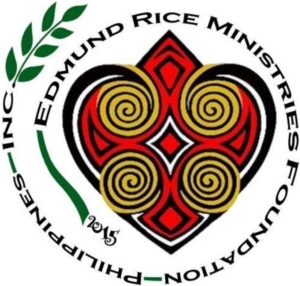Abundant in natural resources, Negros Occidental's output in the 2002–2003 accounts for nearly half of the country's sugar production in an industry that generates an estimated annual revenue of more than ₱18 billion. However, people are still living in dire poverty. Of the 2.2 million population of Negros Occidental Province, of which Bacolod is the capital, about 43 percent, or 946,000, are below the age of 15. Of these children, according to 1986 provincial government statistics, 74 percent are estimated to be suffering from varying degrees of malnutrition.
ERMFPI through the DIDRR project has worked with 120 persons with disabilities in selected barangays of Maasin City, Southern Leyte and Palo, Leyte. In Palo and Maasin, persons with disabilities’ average monthly income are ₽8,150 and ₽7,945 respectively. Of the 120 targeted persons with disabilities, less than 14 percent engaged in gainful occupation. This is due to the fact that majority of them have only attended elementary education and only very few have gone to high school or college. In Maasin, about 20% of persons with disabilities have no schooling at all.
ERMFPI through the DIDRR project has worked with 120 persons with disabilities in selected barangays of Maasin City, Southern Leyte and Palo, Leyte. In Palo and Maasin, persons with disabilities’ average monthly income are ₽8,150 and ₽7,945 respectively. Of the 120 targeted persons with disabilities, less than 14 percent engaged in gainful occupation. This is due to the fact that majority of them have only attended elementary education and only very few have gone to high school or college. In Maasin, about 20% of persons with disabilities have no schooling at all.
The root cause of children being out of school was seen to be Family Poverty through lack of Livelihood. Lack of means of family income can lead to the family living off light snacks and when food is available. Having sufficient food for one nutritious meal a day can be a challenge. This results in the child going to school hungry and lacking motivation to learn. Following the school lunch break, the hungry child finds it difficult to face the afternoon lessons and may not return to class. Instances of whole-day absenteeism follow and this inevitably leads to dropping out of schooling altogether. The regular feeding activity is considered “developmental” in that it involves the local community in preparing the meals and relies on the in-kind contributions of local partners- government, private individuals, parish churches and religious congregations. The feeding is “supplementary” in the sense that the activity does not take away the primary responsibility of parents for the daily feeding of their children.
The root cause of children being out of school was seen to be Family Poverty through lack of Livelihood. Lack of means of family income can lead to the family living off light snacks and when food is available. Having sufficient food for one nutritious meal a day can be a challenge. This results in the child going to school hungry and lacking motivation to learn. Following the school lunch break, the hungry child finds it difficult to face the afternoon lessons and may not return to class. Instances of whole-day absenteeism follow and this inevitably leads to dropping out of schooling altogether. The regular feeding activity is considered “developmental” in that it involves the local community in preparing the meals and relies on the in-kind contributions of local partners- government, private individuals, parish churches and religious congregations. The feeding is “supplementary” in the sense that the a
The Sama-badjao Livelihood and Community WASH project started out as one-year project in Dolho, Bato, Leyte, Philippines. Funded by Misean Cara through the assistance of Edmund Rice Development, a second cycle with a 3-year term was implemented in recognition of the fact that changes do not happen overnight. Since 2018, ERMFPI has worked with the Sama-badjao community and has established a good working relationship wherein significant victories, as well as challenges, were garnered along the way. Among those notable ones are the strengthening of the Sama-badjao women’s group institution building and enterprise development, increased awareness among community members in sanitation and solid waste management, improved well-being and development of skills of the Sama-badjao families. ERMFPI has also facilitated linkages and networks of allies of the Badajo community- local government units, local project partners and other people’s organizations within and outside Bato, Leyte.

